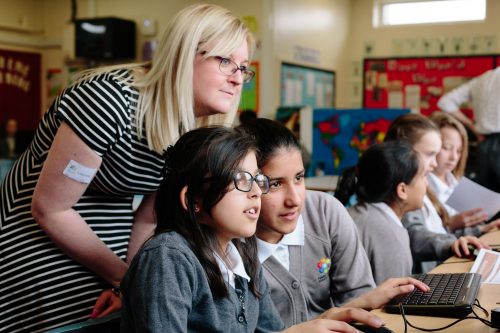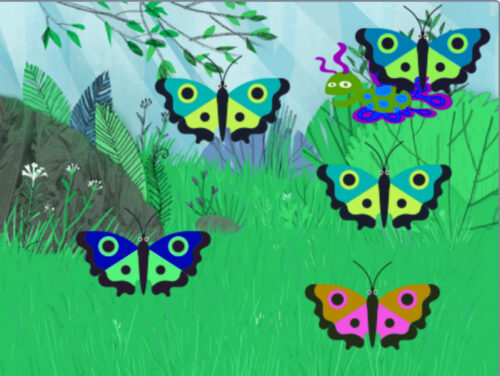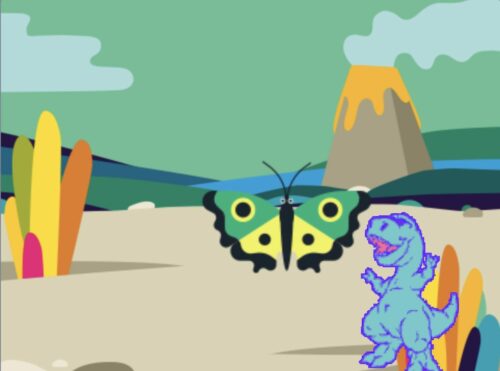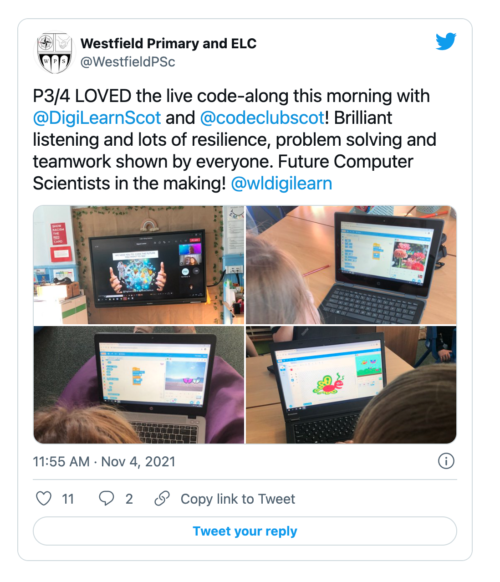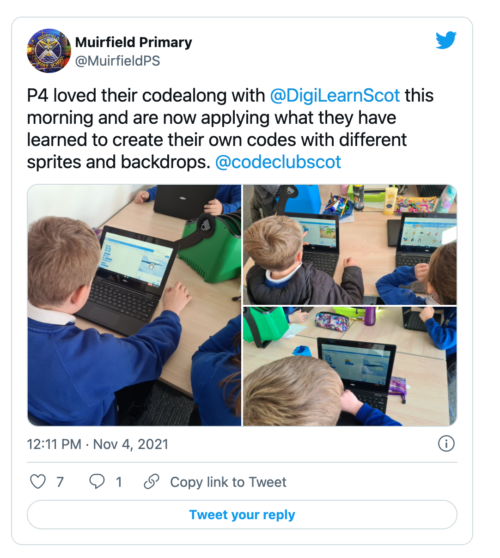This month, the team behind our Code Club programme supported nearly 6000 children across Scotland to “code against climate change” during the United Nations Climate Change Conference (COP26) in Glasgow.

 - Werbung -- Werbung -– Werbung –
- Werbung -- Werbung -– Werbung –
“The scale of what we have achieved is outstanding. We have supported over 5750 young learners to code projects that are both engaging and meaningful to their conversations on climate.”
Louise Foreman, Education Scotland (Digital Skills team)
Creative coding to raise awareness of environmental issues
Working with teams from Education Scotland, and with e-Sgoil, our Code Club team hosted two live online code-along events that saw learners from 235 schools across Scotland come together to code and learn about protecting the environment.
“This type of event at this scale would not have been possible before the pandemic. Now joining and learning through live online events is quite normal, thanks to platforms like e-Sgoil’s DYW Live. That said, the success of these code-alongs has been above even our wildest imaginations.”
Peter Murray, Education Scotland (Developing the Young Workforce team)
Classes of young people aged 8 to 14 across Scotland joined the live online code-along through the national GLOW platform and followed Lorna from our Code Club team through a step-by-step project guide to code creative projects with an environmental theme.
At our first session, for beginners, the coding newcomers explored the importance of pollinating insects for the environment. They first learned that a third of the food we eat depends on pollinators such as bees and butterflies, and that these insects are endangered by environmental crises.
Then the young coders celebrated pollinating insects by coding a garden scene filled with butterflies, based on our popular Butterfly garden project guide. This Scratch project introduces beginner coders to loops while they code their animations, and it allows them to get creative and customise the look of their projects. Above are still images of two example animations coded by the young learners.
The second Code Club code-along event was designed for more confident coders. First, learners were asked to consider the impact of plastic in our oceans and reflect on the recent news that around 26,000 tonnes of coronavirus-related plastic waste (such as masks and gloves) has already entered our oceans. To share this message, they then coded a game based on our Save the shark Scratch project guide. In this game, players help a shark swim through the ocean trying to avoid plastic waste, which is dangerous to its health.
Supporting young people’s future together
These two Scotland-wide code-along events for schools were made possible by the long-standing collaboration between Education Scotland and our Code Club team. Over the last five years, our shared mission to grow interest for coding and computer science among children across Scotland has helped Scottish teachers start hundreds of Code Clubs.
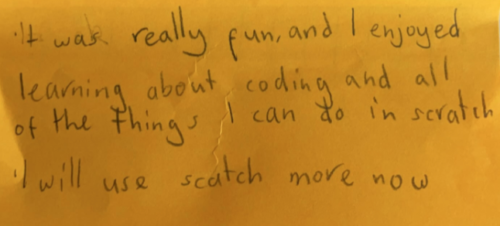
“The code-alongs were the perfect celebration of all the brilliant work we have done together over the years. What better way to demonstrate the importance of computing science to young people than to show them that not only can they use those skills on something important like climate change, but they are also in great company with thousands of other children across Scotland. I am excited about the future.”
Kirsty McFaul, Education Scotland (Technologies team)
Join thousands of teachers around the world who run Code Clubs
We also want to give kudos to the teachers of the 235 schools who helped their learners participate in this Code Club code-along. Thanks to your skills in supporting your learners to participate in online sessions — skills hard-won during school closures — over 5000 young people have been inspired about coding and protecting the planet we all share.
Teachers around the world run Code Clubs for their learners, with the help of our free Code Club resources and support. Find out more about starting a Code Club at your school at www.codeclub.org.
Website: LINK

